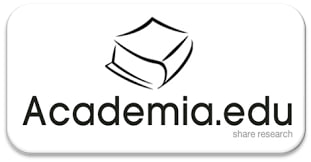Understanding the Impact of Knowledge Management Practices on Organizational Learning and Adaptability in the Technology Sector
Keywords:
Knowledge management, organizational learning, adaptability, technology sector, qualitative research, Tehran, knowledge sharing, resilienceAbstract
This study aims to explore how knowledge management (KM) practices influence organizational learning processes and adaptability within technology firms operating in Tehran. Using a qualitative research design, this study employed semi-structured interviews with 21 professionals working in various roles within the technology sector in Tehran, including project managers, IT staff, R&D specialists, and mid-level executives. Participants were selected through purposive sampling, and interviews continued until theoretical saturation was reached. Data were analyzed thematically using NVivo software, following Braun and Clarke’s six-phase framework. The analysis focused on identifying key themes related to KM infrastructure, organizational learning mechanisms, and adaptability strategies, drawing on participants' lived experiences to develop a contextual understanding of how KM functions in knowledge-intensive environments. Three overarching themes emerged from the data: (1) Knowledge Management Infrastructure, including technological tools, cultural readiness, and codification processes; (2) Organizational Learning Processes, such as knowledge sharing, experiential learning, and retention mechanisms; and (3) Organizational Adaptability, including responsiveness to change, innovation capacity, and learning agility. Participants described how KM systems enabled faster decision-making, supported continuous improvement, and enhanced resilience to environmental disruptions. The integration of KM with strategic planning and change readiness was found to be particularly critical in enabling dynamic adaptation in fast-paced technology environments. The findings underscore the strategic role of KM in shaping learning capabilities and adaptive responses within technology organizations. An integrated KM approach—comprising digital infrastructure, cultural alignment, and structural mechanisms—can significantly enhance a firm’s ability to learn, innovate, and remain resilient in volatile markets. The study offers practical implications for KM implementation and sets the stage for further research in diverse organizational contexts.
Downloads
References
Alavi, M., & Leidner, D. E. (2001). Review: Knowledge management and knowledge management systems: Conceptual foundations and research issues. MIS Quarterly, 25(1), 107–136. https://doi.org/10.2307/3250961
Andreeva, T., & Kianto, A. (2012). Does knowledge management really matter? Linking knowledge management practices, competitiveness and economic performance. Journal of Knowledge Management, 16(4), 617–636. https://doi.org/10.1108/13673271211246185
Argote, L., & Miron-Spektor, E. (2011). Organizational learning: From experience to knowledge. Organization Science, 22(5), 1123–1137. https://doi.org/10.1287/orsc.1100.0621
Bontis, N., Crossan, M. M., & Hulland, J. (2002). Managing an organizational learning system by aligning stocks and flows of knowledge. Journal of Management Studies, 39(4), 437–469. https://doi.org/10.1111/1467-6486.t01-1-00299
Choi, B., Poon, S. K., & Davis, J. G. (2008). Effects of knowledge management strategy on organizational performance: A complementarity theory-based approach. Omega, 36(2), 235–251. https://doi.org/10.1016/j.omega.2006.06.007
Cross, R., & Baird, L. (2000). Technology is not enough: Improving performance by building organizational memory. Sloan Management Review, 41(3), 69–78.
Davenport, T. H., & Prusak, L. (1998). Working knowledge: How organizations manage what they know. Harvard Business Press.
De Long, D. W., & Fahey, L. (2000). Diagnosing cultural barriers to knowledge management. Academy of Management Perspectives, 14(4), 113–127. https://doi.org/10.5465/ame.2000.3979820
Gold, A. H., Malhotra, A., & Segars, A. H. (2001). Knowledge management: An organizational capabilities perspective. Journal of Management Information Systems, 18(1), 185–214. https://doi.org/10.1080/07421222.2001.11045669
Grant, R. M. (1996). Toward a knowledge‐based theory of the firm. Strategic Management Journal, 17(S2), 109–122. https://doi.org/10.1002/smj.4250171110
Kim, S., & Lee, H. (2006). The impact of organizational context and information technology on employee knowledge-sharing capabilities. Public Administration Review, 66(3), 370–385. https://doi.org/10.1111/j.1540-6210.2006.00595.x
Lee, H., & Choi, B. (2003). Knowledge management enablers, processes, and organizational performance: An integrative view and empirical examination. Journal of Management Information Systems, 20(1), 179–228. https://doi.org/10.1080/07421222.2003.11045756
Nonaka, I., & Takeuchi, H. (1995). The knowledge-creating company: How Japanese companies create the dynamics of innovation. Oxford University Press.
Senge, P. M. (2006). The fifth discipline: The art and practice of the learning organization. Doubleday.
Zahra, S. A., & George, G. (2002). Absorptive capacity: A review, reconceptualization, and extension. Academy of Management Review, 27(2), 185–203. https://doi.org/10.5465/amr.2002.6587995
Downloads
Published
Submitted
Revised
Accepted
Issue
Section
License

This work is licensed under a Creative Commons Attribution-NonCommercial 4.0 International License.




